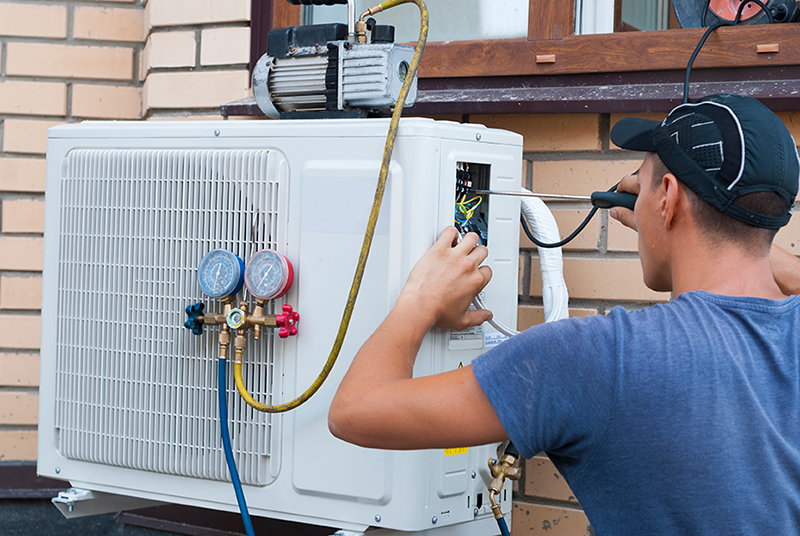Are you sweating? Why is the temperature rising? In the rush of daily life, you may overlook your home's air conditioning unit. Your air conditioner could have stopped operating. This could be because it's overworked. It could also be because it's not serviced as often as it should be. Treat HVAC problems as soon as possible. This is to avoid temperature swings. It can also reduce the danger of flooding. Most AC problems have a solution in a matter of minutes. Look at the five most common air conditioning issues. We even offer the solutions to these issues.
The Air Conditioner Is Not Functioning at All
When your AC goes down, it will be without notice. There are some things you can do to find and fix the issue before calling an HVAC professional. First, check the batteries in your thermostat. Changing batteries is an easy-to-miss household task. Thermostats are often overlooked due to their "place it and leave it" nature. Replace the batteries if they are dead. Then, make sure that your thermostat is set to "cooling". Also, make sure the desired temperature is correct. If you do that, and nothing changes, you might have to reset the circuit breaker on the air conditioner.
Your Air Conditioner is Blowing Hot or Warm Air
Few things are more inconvenient than an AC unit that only provides lukewarm air. Before you do anything, double-check that the thermostat settings haven't changed. The first thing you can do if your thermostat settings are proper is to replace your air filter. AC problems such as frozen coils are usually caused by old, blocked air filters.
If the air filter is not the issue, you may be short on refrigerant. Feel the biggest copper wire that leads to the system's condenser to see if this is the case. Your levels are excellent if it is wet and chilly to the touch. If it lacks either one of those characteristics, the refrigerant level is low. You should call an HVAC specialist to refill or repair the refrigerant reservoir.
You Have a Leaking Unit
HVAC units do leak some fluid and condensate. Excessive leakage indicates a variety of issues with many solutions. Usually, the condensate line has a clog. Unclogging it is simple enough for a DIY repair. Be sure to use the manufacturer's guidelines. If you have any doubts, reach out to one of our trained HVAC professionals. We can find the leak and make sure it isn't something more serious.
Uneven Temperature Distribution
Have you noticed that one section of your house is warmer than another? Is an area colder than another? An imbalanced air system might be the source of the problem. Many things determine which parts of your home receive priority from the HVAC unit. These include the room size, the air vents, windows, and the outside temperature. Make sure to cover big windows with sun-blocking drapes or blinds. You should inspect each room's insulation. Also, add dampers to regulate your HVAC system. This will move the air to make every room equal in temperature.
Your Air Conditioner Is Loud
You should feel your HVAC functioning. You should not have to listen to it. If your air conditioner sounds like it's working hard to keep you cool, it is. Failing air conditioners generate a variety of noises. These can be hard to recognize if you aren't a professional. Squealing and screeching can be a sign of a defective belt. Rattling noises might be a problem with the motor, fans, or compressors. Checking the thermostat and removing debris from near your outside unit is a good start. But if you hear suspicious noises, you will need an HVAC expert.
CALL US TODAY
The best approach to avoid frequent HVAC problems is to have a Robert Bair HVAC professional. We will maintain and repair your HVAC system. Don't put it off until it's too late. A basic, affordable repair may become a big, expensive one if left unattended. Call us today to set up an appointment with on of our trusted technicians.






